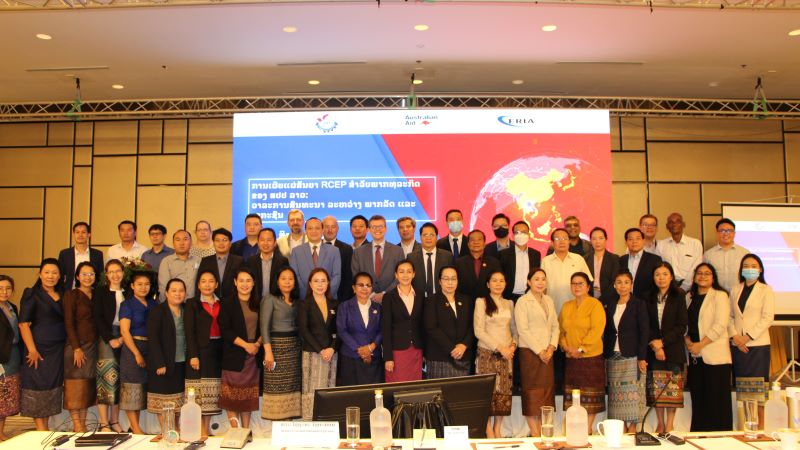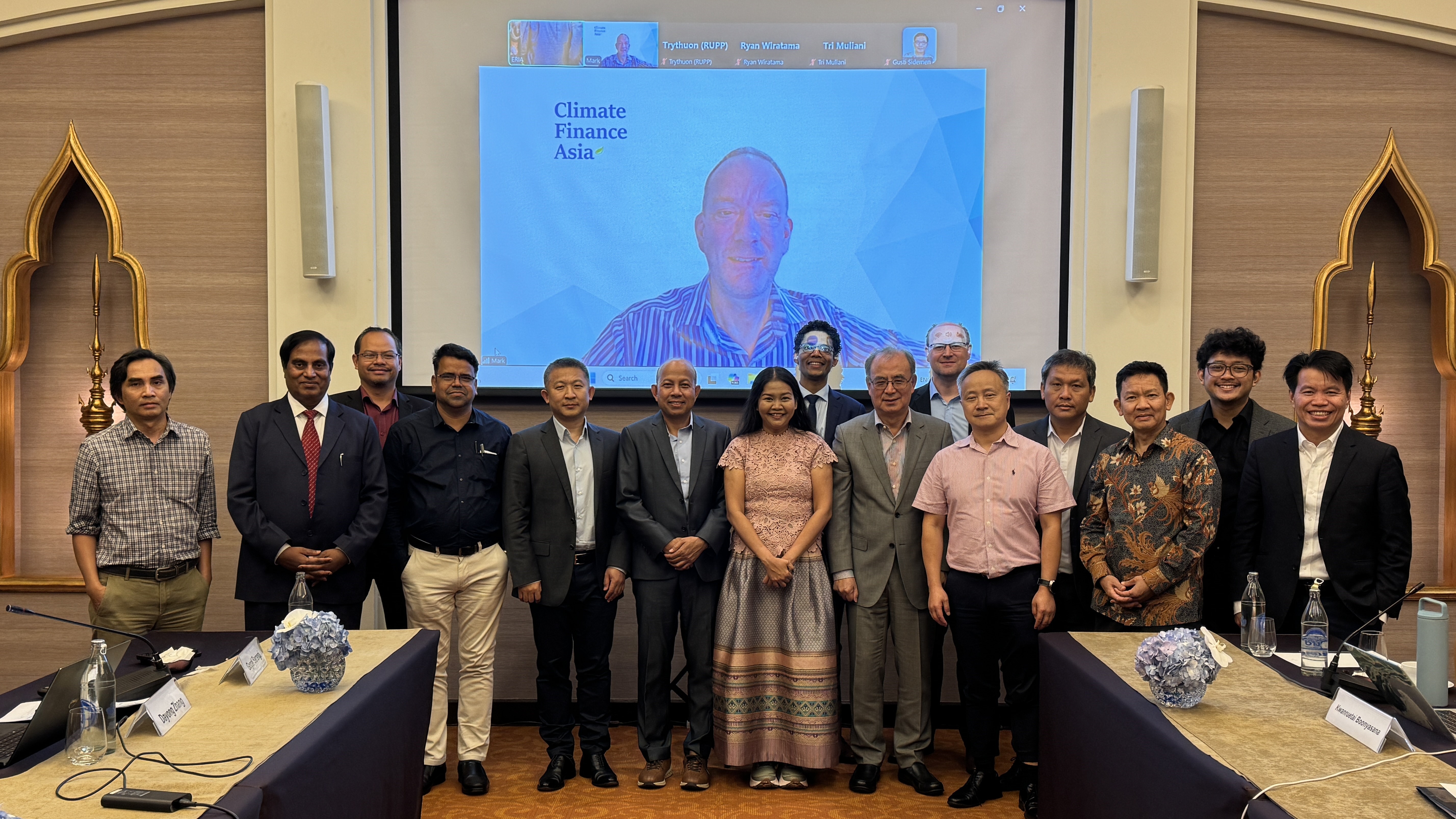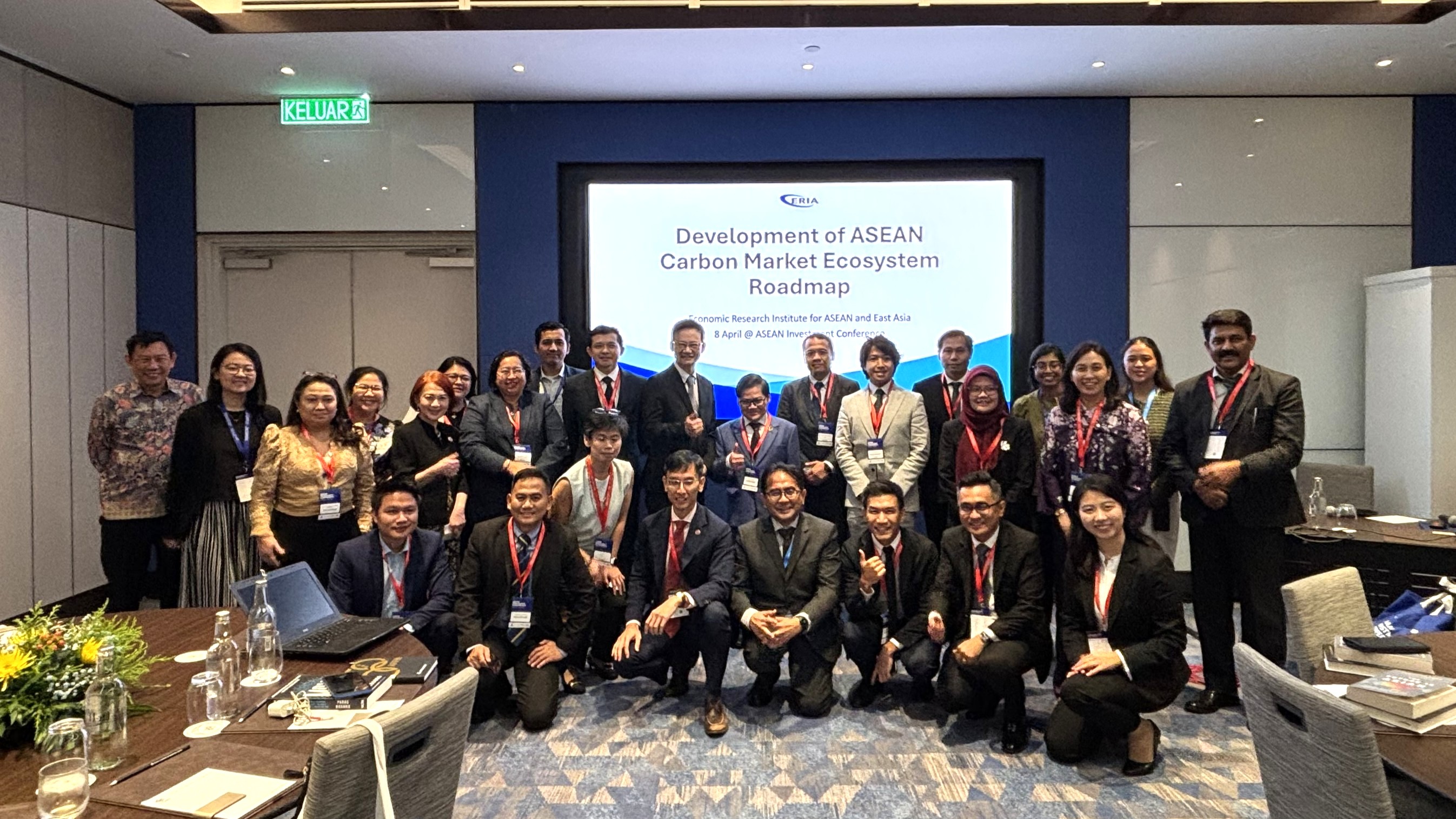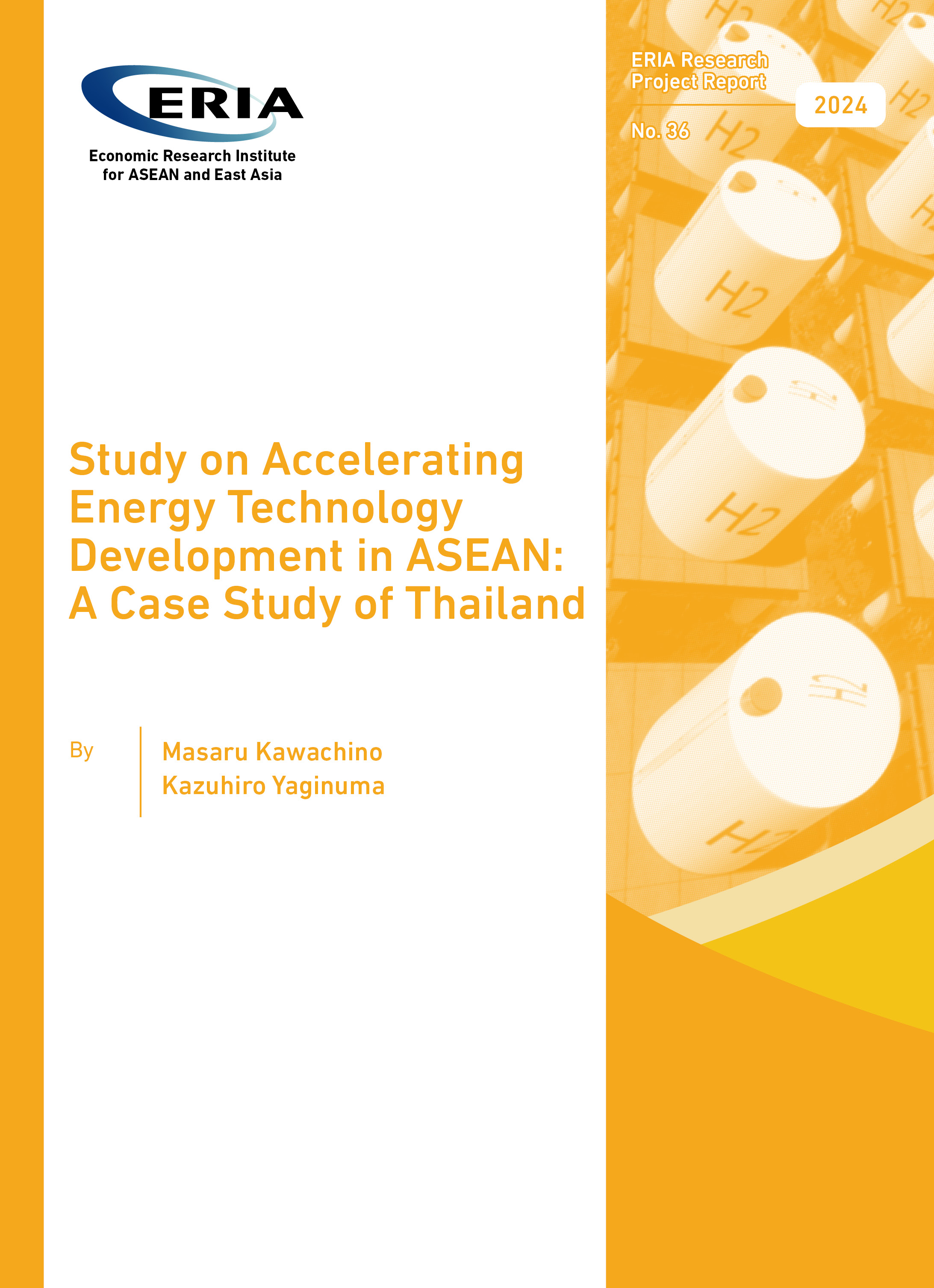Unpacking the RCEP Agreement for Lao Business: Public and Private Dialogue Series
Date:
10 August 2022Category:
Multimedia, NewsTopics:
Capacity Building, Lao PDR, RCEPShare Article:
Print Article:
Vientiane, 10-11 August 2022: With the 1 January entry into force of the Regional Comprehensive Economic Partnership (RCEP), it is urgent for businesses to seize the opportunities created by this mega trade agreement. For Lao PDR, RCEP will create favourable trade, investment, and tourism conditions. To increase awareness of the agreement and the opportunities created by it, ERIA’s Capacity Building Programme, in collaboration with the Ministry of Industry and Commerce (MOIC), held a series of Public-Private Dialogues on 'Unpacking the RCEP Agreement for Lao Businesses', from 10-11 August 2022 in Vientiane. To maximise outreach, the event was also live streamed.
The Dialogues covered six RCEP chapters in five sessions: Trade in Goods and Rules of Origin, Customs Procedures and Trade facilitation, Services, Investment and E-commerce. Each Dialogue consisted of two sessions: presentations by a trade expert and government officials about the related chapter followed by a panel discussion composed of private sector representatives discussing the benefits and challenges of the agreement from the private sector perspective.
The Dialogue series was opened by H.E Malaithong Kommasith, Minister of Industry and Commerce, Lao PDR and H.E Paul Kelly, Australian Ambassador for Lao PDR. Both emphasized the importance of open discussion between multi-stakeholders to ensure that the implementation of the agreement brings real benefits to Lao PDR and that government officials are ready to support businesses to maximize the potential opportunities of RCEP. Day 1 focused on the Rules of Origin (ROO) and Trade Facilitation chapters, with an audience of 71 onsite and 73 online. On Day 2, 54 attended in person and 50 online for the discussions on the E-commerce, Services, and Investment chapters.
In person participants came from various ministries and state bodies including the Ministry of Planning and Investment, Ministry of Post and Telecommunication, Ministry of Finance and the National Assembly, as well as MOIC, representatives of the private sector - particularly chambers of commerce such as Lao National Chamber for Commerce and Industry (LNCCI), AusCham, EuroCham, Singapore Business Association, Japan External Trade Organization (JETRO), Lao ICT Commerce Association - and individual firms. There were also representatives from academia and development organisations in attendance.
The event was hosted by Jeremy Gross, Director of Capacity Building Programme at ERIA, and moderated by Sven Callebaut, International Trade Consultant for the Capacity Building Programme. On the second day, closing remarks were delivered by Saysana Sayakone, Director General, Department of Foreign Trade Policy. The event was supported by the Australian Government.
Opening Session
A. Dialogue 1 'Trade in Goods and Rules of Origin Chapter'
Session 1: The RCEP Provisions on Trade in Goods and on Rules of Origin: Explanation and What They Mean for Laos
Delivered by:
- Deborah Elms, Founder and Executive Director, Asian Trade Centre
- Somphone PHADY, Deputy Director, Department of Foreign Trade Policy, MOIC
- Phoxai INTHABOUALY, Deputy Director, Department of Import and Export, MOIC
Session 2: How Can the Lao Private Sector Increase its Readiness and Benefit from the Trade in Goods and Rules or Origin Provisions
Delivered by:
- Xaybandith RASPHONE, President, Association of the Lao Garment Industry and Vice President of LNCCI
- Deborah Elms, Founder and Executive Director, Asian Trade Centre
B. Dialogue 2 'Customs Procedures and Trade Facilitation Chapter'
Session 1: The RCEP Provisions on Customs Procedures and Trade Facilitation: Explanation and What They Mean for Laos
Delivered by:
- Deborah Elms, Founder and Executive Director, Asian Trade Centre
- Bouasavath Viphasouk, Deputy Director of Legislation Division, Custom Department, Ministry of Finance
Session 2: How Can the Lao Private Sector Increase its Readiness and Benefit from Provisions on Customs Procedures and Trade Facilitation
Delivered by:
- Stephane Gil, CEO, BIVAC Lao Co. Ltd
- Xaybandith RASPHONE, President, Association of the Lao Garment Industry and Vice President of LNCCI
C. Dialogue 3 'E-commerce Chapter'
Session 1: The RCEP Provisions on E-commerce: Explanation and What They Mean for Laos
Delivered by:
- Deborah Elms, Founder and Executive Director, Asian Trade Centre
- Souchitta SRITTHIRATH, Deputy Director, Department of Foreign Trade Policy, MOIC
Session 2: How Can the Lao Private Sector Increase its Readiness and Benefit from Provisions on E-commerce
Delivered by:
- Thanousone PHONAMAT, Vice President of LNCCI
- Thanyalat CHALEUNSOUK, Managing Director, FoodPanda, Laos
D. Dialogue 4 'Trade in Services Chapter'
Session 1: The RCEP Provisions on Trade in Services
Delivered by:
- Deborah Elms, Founder and Executive Director, Asian Trade Centre
- Nongchit KHAMBOUNHEUANG, Director, Department of Foreign Trade Policy, MOIC
Session 2: How Can the Lao Private Sector Increase its Readiness and Benefit from Provisions on Trade in Services
Delivered by:
- Deborah Elms, Founder and Executive Director, Asian Trade Centre
- Philaiphone VONGPRASEUTH, Vice President of Young Entrepreneur Association in Laos (YEAL) and CEO of the Solver Laos Sole Co.Ltd.
E. Dialogue 5 'Investment Chapter'
Session 1: The RCEP Provisions on Investment
Delivered by:
- Deborah Elms, Founder and Executive Director, Asian Trade Centre
- Thidavanh CHONGCHIT, Department of Investment Promotion, Ministry of Planning and Investment (MPI)
Session 2: How Can the Lao Private Sector Increase its Readiness and Benefit from Provisions on Investment
Delivered by:
- Tee Chee Seng, VIP Member of LNCCI
- Sivath Sengdouangchanh, CEO, Sivath & Associate
Closing Session
Coverage:








